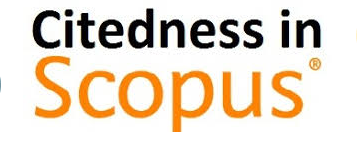Human Rights Court and Truth Reconciliation Commission for the Settlement of Human Rights in Indonesia
DOI:
https://doi.org/10.18196/iclr.1104Keywords:
human rights, justice, violatedAbstract
The law on human rights court has brought the new hopes for certain people have suffered because of the human rights violation happened in the past government (before the law enacted in the years of 2000). The demand of justice has been made by victims, the families of victims and other sympathetic parties by bringing those who have violated human rights in the past. The demand for justice does not only focus on human rights violations, which occurred in the past but also similar human rights violations that will occur in the future. The existence of a permanent Human Rights Court seems to imply that human rights will be upheld and protected. The resolution of past human rights violations via a conflict approach is preferable for the national reconciliation. The resolution of past human rights violations through extra-judicial organizations is an advanced step towards resolving the case, whereas a conflict approach can be used to settle the case. The existence of the Human Rights Law provides a new frontier in implementing the principle of restorative justice in the approach of case settlement. It is hoped that such restorative justice can create a political balance between the past and the future.
References
Amstutz, M.R. (2005). The Healing of Nations. Lanham: Rowman & littlefield.
Andrews, S., Tombokou. (2008). Doing Narrative Research. Los Angeles, London, New Delhi, Singapore, SAGE.
Arinanto, Satya. (2005). Hak Asasi Manusia dalam Transisi Politik di Indonesia [Human Rights in Indonesia’s Political Transition]. Jakarta: Pusat Studi Hukum Tata Negara Fakultas Hukum Universitas Indonesia.
Bachtiar Surin. (1978). Terjemah dan Tafsir Al-Qur’an (Translation and Interpretation of the Koran), Bandung: Fa. Sumatra.
Bassiouni, C. (2002) (ed.), Post-Conflict Justice. Ardsley: Transnational Publishers.
Baumeister, R. F., Exline, J. J., & Sommer, K. L. (1999). The Victim Role, Grudge Theory, and Two Dimensions of Forgiveness. In E. L. Worthington, Jr. (Ed.), Dimensions of Forgiveness: Psychological Research and Theological Perspectives, Philadelphia: Templeton Foundation Press.
Bloor, M. (2001). Frankland, J, Thomas,M, Robson,K. Focus Group in Social Research. New Delhi, SAGE Publication California.
Connelly, F. M. (2000). Clandini, J.D. Narrative Inquiry: Experience and Story in Qualitative Research. San Fransisco, Jossey-Bass.
Dahlan, Abdul Aziz. (1996). Ensiklopedi hukum Islam. Jakarta : Ichtiar Baru van Hoeve.
Daniel Levy, and Natan Sznaider, (2006), “Forgive and Not Forget: Reconciliation Between Forgiveness and Resentment”, Taking Wrongs Seriously: Apologies and Reconciliation, Standford California: Stanford University Press.
El-Muhtaj, Madja. (2005). Hak Asasi Manusia dalam Konstitusi Indonesia Dari UUD 1945 sampai dengan Amandemen UUD 1945 Tahun 2002. Edisi I, cet ke-2, Jakarta: Kencana Prenada Media Group.
Hayner, P. (2011). Unspeakable Truth: Transistional Justice and the Challenge of Truth Commissions, Routledge: New York.
Joeniarto. (1968). Negara Hukum, Jajasan Badan penerbit Gadjah Mada, Jogjakarta, 1968.
Kritz, N. (ed). (1995). Transitional Justice, Washington DC: United States Institute of Peace Studies.
Mahkamah Agung. (2006). Pedoman Unsur-unsur Tindak Pidana Pelanggaran HAM yang Berat dan Pertanggungjawaban Komando, Mahkamah Agung RI, 2006.
Manning, Chris, and Peter Van Diemen, (eds.) (2000), Indonesia in Transition: Social Dimensions of the Reformasi and the Economic Crisis, Vol. 6. Zed Books.
McAdams, A. (ed). (1997). Transitional Justice and the Rule of Law in New Democracies, Notre Dame: University of Notre Dame Press.
Mertokusumo, Sudikno. (1996). Mengenal Hukum (Suatu Pengantar), (Know the Law (An Introduction)) 1st edition. Yogyakarta: Liberty.
Mumby, D. K. (1993). Narrative and Social Control: Critical Perspective, Sage Publication.
Yamin, Muhammad. (1958). Proklamasi dan Konstitusi Republik Indonesia (Indonesian Proclamation and Constitution), Ed. V, Jakarta: Djambatan.
Nordholt, H.S. (2002). A Genealogy of Violence, in Roots of Violence in Indonesia, Leiden: KITLV Press.
Paul Lederach, John. (1997). Building Peace: Sustainable Reconciliation In Divided Societies, Washington DC: USIP Press.
Phillips, Timothy, and Mary Albon. (1999). When Prosecution Is Not Possible: Alternative Means of Seeking Accountability for War Crimes, in War Crimes: The Legacy of Nuremburg 244, 244, Belinda Cooper, ed.
Riessman, C. K. (1993). Narrative Analysis: Qualitative Research Methods. California, United Kingdom, India, SAGE.
Squire. (2008). Narrative Analysis. Doing Narrative Research. S. Andrews, Tombokou. Los Angeles, London, New Delhi, Singapore, SAGE.
Strang, Robert R. (2008). “More Adversarial, but not Completely Adversarial”: Reformasi of the Indonesian Criminal Procedure Code. Fordham International Law Journal. Volume 32, Issue 1, article 13: Berkley Electronic Press.
Thalib, Sajuti. (1987). Hukum Kewarisan Islam di Indonesia (Law of Inheritance in Indonesia). Jakarta: Bina Aksara.
Rahardjo, Satjipto. (2009). Hukum Progresif: Sebuah Sintesa Hukum Indonesia. Yogyakarta: Genta Publishing.
Teitel, Ruti G. (2000). Transitional Justice. New York: Oxford University Press.
United Nations. (1998). Basic Facts About the United Nations. New York: Department of Public Information United Nations.
Journal
Andrews, Molly. “Forgiveness in Context”, Journal of Moral Education, 29.1 (2000): 75-86.
Chapman, Audrey R. “Truth commissions and intergroup forgiveness: The case of the South African Truth and Reconciliation Commission”, Peace and Conflict, 13.1 (2007): 51-69.
Campbell, Colm, and Fionnuala Ni Aolain, “Local Meets Global: Transitional Justice In Northern Ireland”, Fordham Int'l LJ, 26 (2002): 871.
Drožđek, Boris. "How do we salve our wounds? Intercultural Perspectives on Individual and Collective Strategies of Making Peace With Own Past". “Traumatology”, 16.4 (2010): 5.
Geula, Marianne. "South Africa's Truth and Reconciliation Commission as an Alternate Means of Addressing Transitional Government Conflicts in a Divided Society”, "BU Int'l LJ”, 18 (2000): 57.
Hadiprayitno, Irene Istiningsih. (2010). “Defensive Enforcement: Human Rights in Indonesia”, Human Rights Rev, 11:373–399.
Hamber, Brandon. “Rights and Reasons: Challenges for Truth Recovery in South Africa and Northern Ireland”, Fordham Int'l LJ, 26 (2002): 1074.
Hayner, P. (1994) Fifteen Truth Commissions, 1974-1993: A Comparative Study. Human Rights Quarterly, XVI, str. 600-655.
Huyse, Luc. "Justice after transition: on the choices successor elites make in dealing with the past." Law & Social Inquiry 20.1 (1995): 51-78.
Kohen, Ari, Michael Zanchelli, and Levi Drake, Personal and Political Reconciliation in Post-Genocide Rwanda, “Social Justice Research”, (2011), 24:1, 85-106.
Macdonald, R.A. (1998) “Metaphors of Multiplicity: Civil Society, Regimes and Legal Pluralism”, Arizona Journal of International and Comparative Law, 15.
Mazzei, Julie M. “Finding Shame in Truth: The Importance of Public Engagement in Truth Commissions”, “Human Rights Quarterly”, 33.2 (2011): 431-452.
Meek, K.R., and McMinn, MR. “Forgiveness: More Than A Therapeutic Technique”, Journal of Psychology and Christianity, (1997):16, 51-61.
Mendeloff, David. “Trauma And Vengeance: Assessing The Psychological And Emotional Effects Of Post-Conflict Justice”, Human Rights Quarterly, 31.3 (2009): 592-623.
Noor, Masi. et.al., “On Positive Psychological Outcomes: What Helps Groups With A History Of Conflict To Forgive And Reconcile With Each Other?”, Personality and Social Psychology Bulletin, 2008.
Rye, M. S., Pargament, K. I., Ali, M. A., Beck, G. L., Dorff, E. N., Hallisey, C., Narayanan, V., & Williams, J. G. (2000). Religious perspectives on forgiveness. In M. E. McCullough, K. I. Pargament, & C. E. Thoresen (Eds.), Forgiveness: Theory, research, and practice (pp. 17-40). New York: Guilford.
Pettigrove, Glen. “Hannah Arendt and Collective Forgiving”, Journal of Social Philosophy, 37.4 (2006): 483-500.
Peterson Armour, Marilyn, and Mark S. Umbreit, Victim Forgiveness In Restorative Justice Dialogue, “Victims and offenders”, 1.2 (2006): 123-140.
Phillips, A. Forgiveness Reconsidered. Christian Jewish Relations, 19 (1986): 14-21.
Shriver Jr., Donald W. ls There Forgiveness in Politics? Germany, Vietnam, and America, ”Exploring Forgiveness”, (1998): 133-135.
Strang, Heather. Justice For Victims of Young Offenders: The Centrality of Emotional Harm and Restoration, “Restorative Justice for Juveniles: Conferencing, Mediation and Circles” (2001): 183-193.
Sulistiyanto, Priyambudi. (2007). “Politics of Justice and Reconciliation in Post Suharto Indonesia”, Journal of Contemporary Asia, 37:1, 73-94.
Van Zyl, Paul. "Dilemmas of Transitional Justice: The Case of South Africa's Truth and Reconciliation Commission”, Journal of International Affairs-Columbia University, 52 (1999): 647-668
Report
ELSAM. (2002). Progress Report 3 ELSAM on the Ad Hoc Human Rights Court, East Timor Case, ELSAM 2002.
Indonesian Human Rights Commission. (2001). Report on International Workshop “Crimes Against Humanity”, Komnas HAM, Jakarta 20th-21th June 2001.
International Crisis Group. (2001). “ICG Asia Report on Indonesia: Impunity Versus Accountability for Gross Human Rights Violations,” Jakarta, 2 February 2001.
Kontras. (2006) Report on Human Rights Court in Indonesia by Working Groups on Human Rights Court Monitoring Program, released at 24 of August 2006.
Masyarakat Pemantau Peradilan Indonesia. (2003). The Annotation of the Judicial Decission regarding The Human Rights Court Panel Judges Decission on East Timor Case. Depok: MaPPI FHUI.
Security Council of The United Nations. (2005). Summary of the report to the Secretary-General of the Commission of Experts to Review the Prosecution of Serious Violations of Human Rights in Timor-Leste (then East Timor) in 1999 (S/2005/458). Report published by 15th of July 2005.
The Indonesian National Commission on Human Rights. (2000). Annual Report 1999. Jakarta: The Indonesian National Commission on Human Rights.
Dissertation
Mudzakkir. (2001). “Posisi Hukum Korban Kejahatan dalam Sistem Peradilan Pidana,” (The Legal Position of Victims of Crime in the Criminal Justice System) (Doctoral dissertation. Jakarta: Universitas Indonesia.
Paper
Allen, Rob. “Rethinking Retribution: A Critique of Simple Justice”, The Centre for Crime and Justice Studies, 2005.
Atmasasmita, Romli. (2001). “Human Rights and Human Rights Courts in the Context of Permanent International Courts”, one day seminar of “Adjudication of Human Rights Violation by A National, Regional or International Human Rights Court”, (Yayasan Hak Asasi Manusia, Demokrasi dan Supremasi Hukum, Jakarta 23 January 2001).
Farid, Hilmar and Rikardo Simarmatra. (2004). “The Struggle for Truth and Justice: A Survey of Transitional Justice Initiatives Throughout Indonesia”, Occasional Paper Series. New York: ICTJ.
Dandala, H.M. (2001). “Role of The Religious Communities in Bringing Reconciliation in South Africa”, (the paper was delivered at an International Conference: National reconciliation: Learning from the Experience of South Africa, Jakarta, 22nd March 2001).
Internet
http://news.liputan6.com/read/9163/dewi-wardah-islah-adalah-pilihan-terbaik. [Accessed 29 October 2014].
ELSAM, et.al. (2011). Pengadilan Yang Melupakan Korban. 2004. Kelompok Kerja Pemantau Pengadilan HAM, ELSAM, KontraS dan PBHI, 24 Agustus 2006 as cited in <http://elsam.or.id/downloads/1272273131_11.tindak-pidana-ham_5.pdf>, last accessed 24 November 2011.
International Center for Transitional Justice (ICTJ) defines some elements in regard with the transitional justice policy that should be taken for country with repression or HR violation records. Taken from from ICTJ website <http://ictj.org/about/transitional-justice>, last accessed 11 January 2012.
Kompas Daily, Islah Kasus priok Bisa Jadi Model Penyelesaian, Friday 9 March 2001, p. 1. Retrieved from <http://docs.perpustakaan-elsam.or.id/kkr/files/fileMM.2001.pdf>, accessed 22 November 2014.
Soeprapto, Enny. (2010) “Penyelesaian Persoalan HAM di Papua dalam Perspektif Hukum”, Paper presented in Discussion on “Persoalan Konflik Papua: Pemetaan Peran dan Kepentingan Aktor” in Indonesian Institute of Sciences, Jakarta, 1st of July 2004. The article was taken from National Human Rights Commission website <http://www.komnasham.go.id/portal/id/content/kumpulan-makalah-enny-soeprapto>, Accessed by 28th of September 2010.
The Indonesian House of Representative Assembly. (2002). The Compilation of TAP MPR 2000 at <http://hukum.unsrat.ac.id/etc/putusan_mpr_2000.pdf>, last accessed at 18 October 2011
UC Berkley War Crimes Studies Center and Institute for Policy Research and Advocacy (ELSAM). (2008). Monitoring Reports for Ad Hoc Human Rights Court for East Timor in Jakarta, Final Report, 2008. <http://warcrimescenter.berkley.edu>, last accessed 27 of November 2011.
Act
Indonesia. (2000) Law regarding the Human Rights Court, State Gazette Year 2000 No.208, TLN. No.4026.
________. (2000) Peraturan Pemerintah Tentang Tata cara Perlindungan Terhadap korban Dan Saksi Dalam pelanggaran Hak Asasi Manusia Yang Berat (Government Regulations Concerning Procedures for Protection of Victims and Wintesses of Severe Human Rights Violations), PP No. 2/2002, LN No. Year, TLN. No. 4171. art. 2 section (1).
TAP MPR RI No. XVII/MPR/1988.
Newspaper
Kompas. (2001). “Pesan Moral dari Islah Try Sutrisno dan Korban Kasus Tanjung Priok” (The Moral Message of the Islah between Try Sutrisno and Victims of the Tanjung Priok Case), Kompas, 9 March 2001.
Downloads
Published
Issue
Section
License
By publishing with Indonesian Comparative Law Review, authors agree to the following terms:
1. Authors retain the copyright to their work and grant Indonesian Comparative Law Review the right of first publication, while also licensing the work under a Creative Commons Attribution License (CC BY 4.0). This license permits others to share the work, provided they acknowledge the author and the initial publication in this journal.
2. Authors may enter into separate agreements for non-exclusive distribution of the published version of their work, such as posting it to an institutional repository or including it in a book, with acknowledgement of its initial publication in this journal.
3. Authors are encouraged to share their work online, for example on institutional repositories or personal websites, both before and during the submission process. This practice can lead to productive exchanges and increased citation of published work.



